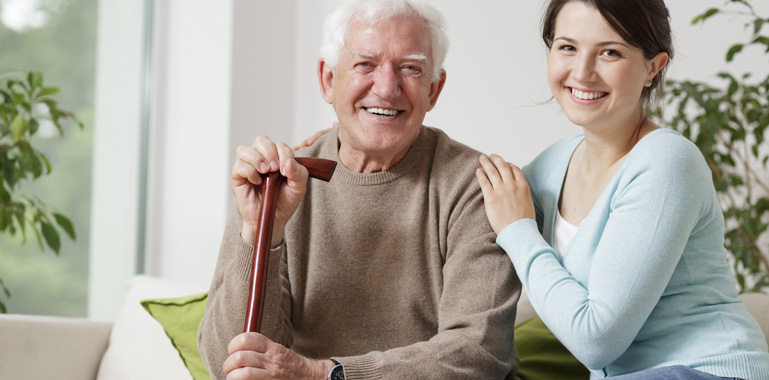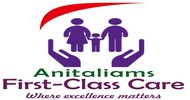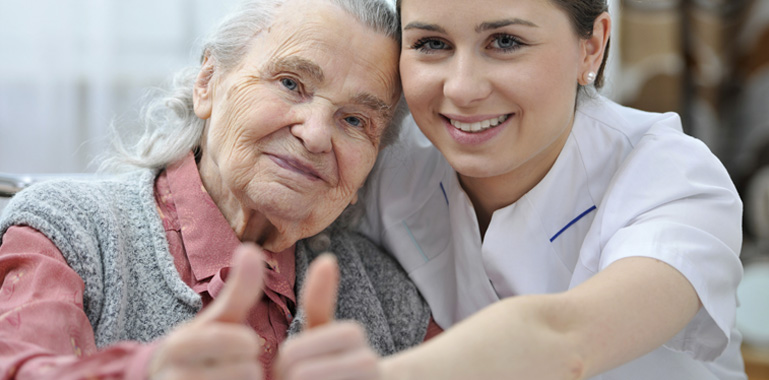NEWS DETAILS

Covid-19 Pandemic and Caregivers Precautions
Caregivers who are caring for a loved one with with symptomatic, laboratory-confirmed COVID-19 or a person under investigation should take special precautions. Close contacts should monitor their health; they should call their healthcare provider right away if they develop symptoms suggestive of COVID-19 (e.g., fever, cough, shortness of breath).
Close contacts should also follow these recommendations:
- Make sure that you understand and can help the patient follow their healthcare provider’s instructions for medication(s) and care. You should help the patient with basic needs in the home and provide support for getting groceries, prescriptions, and other personal needs.
- Monitor the patient’s symptoms. If the patient is getting sicker, call his or her healthcare provider and tell them that the patient has laboratory-confirmed COVID-19. This will help the healthcare provider’s office take steps to keep other people in the office or waiting room from getting infected. Ask the healthcare provider to call the local or state health department for additional guidance. If the patient has a medical emergency and you need to call 911, notify the dispatch personnel that the patient has, or is being evaluated for COVID-19.
- Household members should stay in another room or be separated from the patient as much as possible. Household members should use a separate bedroom and bathroom, if available.
- Prohibit visitors who do not have an essential need to be in the home.
- Household members should care for any pets in the home. Do not handle pets or other animals while sick. For more information, see COVID-19 and Animals.
- Make sure that shared spaces in the home have good air flow, such as by an air conditioner or an opened window, weather permitting.
- Perform hand hygiene frequently. Wash your hands often with soap and water for at least 20 seconds or use an alcohol-based hand sanitizer that contains 60 to 95% alcohol, covering all surfaces of your hands and rubbing them together until they feel dry. Soap and water should be used preferentially if hands are visibly dirty.
- Avoid touching your eyes, nose, and mouth with unwashed hands.
- The patient should wear a facemask when you are around other people. If the patient is not able to wear a facemask (for example, because it causes trouble breathing), you, as the caregiver, should wear a mask when you are in the same room as the patient.
- Wear a disposable facemask and gloves when you touch or have contact with the patient’s blood, stool, or body fluids, such as saliva, sputum, nasal mucus, vomit, urine.
- Throw out disposable facemasks and gloves after using them. Do not reuse.
- When removing personal protective equipment, first remove and dispose of gloves. Then, immediately clean your hands with soap and water or alcohol-based hand sanitizer. Next, remove and dispose of facemask, and immediately clean your hands again with soap and water or alcohol-based hand sanitizer.
- Avoid sharing household items with the patient. You should not share dishes, drinking glasses, cups, eating utensils, towels, bedding, or other items. After the patient uses these items, you should wash them thoroughly (see below “Wash laundry thoroughly”).
- Clean all “high-touch” surfaces, such as counters, tabletops, doorknobs, bathroom fixtures, toilets, phones, keyboards, tablets, and bedside tables, every day. Also, clean any surfaces that may have blood, stool, or body fluids on them.
- Use a household cleaning spray or wipe, according to the label instructions. Labels contain instructions for safe and effective use of the cleaning product including precautions you should take when applying the product, such as wearing gloves and making sure you have good ventilation during use of the product.
- Wash laundry thoroughly.
- Immediately remove and wash clothes or bedding that have blood, stool, or body fluids on them.
- Wear disposable gloves while handling soiled items and keep soiled items away from your body. Clean your hands (with soap and water or an alcohol-based hand sanitizer) immediately after removing your gloves.
- Read and follow directions on labels of laundry or clothing items and detergent. In general, using a normal laundry detergent according to washing machine instructions and dry thoroughly using the warmest temperatures recommended on the clothing label.
- Place all used disposable gloves, facemasks, and other contaminated items in a lined container before disposing of them with other household waste. Clean your hands (with soap and water or an alcohol-based hand sanitizer) immediately after handling these items. Soap and water should be used preferentially if hands are visibly dirty.
- Discuss any additional questions with your state or local health department or healthcare provider.
If you’re looking for a facility to help you provide excellent elderly care for your loved ones, please follow the links below
https://anitaliams.com/forms/care-plan.php
https://anitaliams.com/services.php
Call Us +1 214-785-8385. Fax No +1 469 722 5465
Email : info@anitaliams.com
Source: CDC.gov
Testimonial
pain was born and I will give you a complete accounf the system, and expound the actuteachings of the grea
Gary Watson - Seo
Latest Post
media team
What is a Stroke?
A stroke is the loss of blood supply to part of the brain, it can be a serious life-threatening issue and cause long term damages to cognitive function. When blood sumore...
2022-04-15 06:43:47
Media Team
RETAINING ACTIVENESS AS YOU OLD.
HOW YOU CAN RETAIN YOUR ACTIVENESS AS YOU GROW OLD.
A new study shows that maintaining a lifelong commitment tmore... 2022-02-24 05:59:37
Media Team
Considering care for someone could be one difficult task to embark on and also making a decision can at times be very complex but with good research and making necessary contacts can help in undersmore... 2022-02-06 13:25:41
Public
Caregivers who are caring for a loved one with with symptomatic, laboratory-confirmed COVID-19 or a person under investigation should take special precautions. Close contacts should monitor thmore... 2021-02-05 08:43:51
Copyright© Anitaliams 2024. Anitaliams All Right Reserved.


